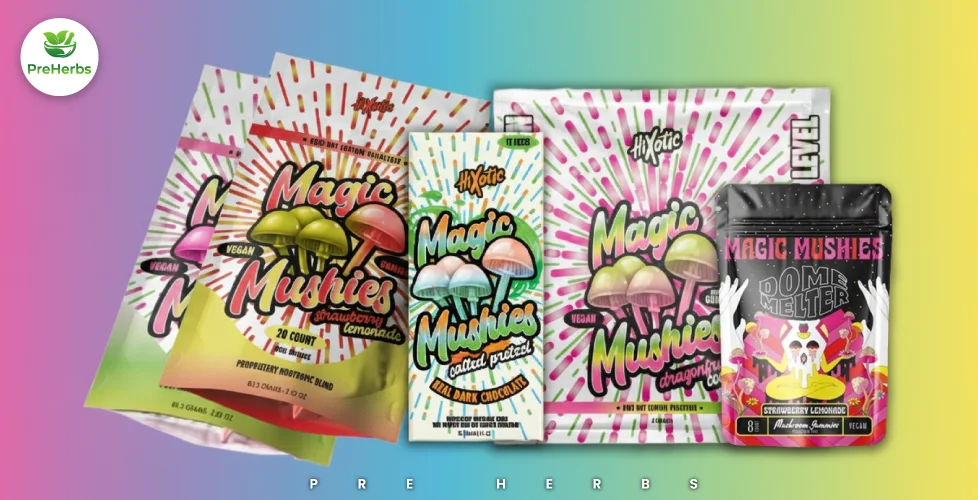The Blue Lotus, technically known as Nymphaea caerulea, is a stunning aquatic plant found throughout Africa and Southeast Asia. This plant, sometimes known as the Sacred Blue Lily, has gorgeous blue petals that float softly in tranquil waters. It has great cultural and spiritual significance, appearing frequently in ancient art, religious rites, and traditional medicinal techniques. This blog aims to introduce the fundamentals and Blue Lotus effects, exploring its potential benefits, limitations, legality, and safety considerations.
What is the Blue Lotus Flower?
The scientific community recognizes the Blue Lotus Flower as Nymphaea caerulea, a water lily that primarily grows in Egypt and certain regions of Asia.
Its significant cultural importance has led to its depiction in ancient papyri and tomb murals, indicating its use in Egypt historically as a traditional remedy for various ailments, including anxiety and insomnia.
People consider it an entheogenic substance because they believe it can induce altered states of consciousness with spiritual or religious implications, preferring this term over ‘hallucinogenic’ or ‘psychedelic.’
Two main compounds, apomorphine and nuciferine, contribute to the psychoactive and medicinal effects of the Blue Lotus Flower.
- Apomorphine is a psychoactive compound acting as a dopamine agonist, potentially inducing feelings of happiness and euphoria. It may also aid in conditions like Parkinson’s disease and erectile dysfunction.
- Nuciferine is thought to function as an antipsychotic, promoting calmness through mechanisms not entirely understood. It has shown potential for alleviating symptoms of erectile dysfunction.
Consumption of the Blue Lotus Flower can lead to a gentle euphoria, often likened to the effects of cannabis, albeit with individual variations.
While not approved for human consumption in the United States, it remains legal for cultivation, sale, and purchase except in Louisiana, where it’s prohibited.
Commonly available forms of the flower include teas, infused beverages, and products for smoking or vaping, often found in specialty wellness stores, vape shops, or online.
It’s essential to verify local and federal laws regarding the legality of psychoactive substances and consult a healthcare professional before experimentation.
What is Blue Lotus flower Meaning?
The Blue Lotus Flower is significant beyond its visual appeal, as it represents rich symbolism across cultures and faiths. In Hinduism and Buddhism, it symbolizes the quest for wisdom, simplicity, and spiritual growth. Its emergence from dark waters symbolizes the human ability to overcome adversity and grow.
Blue Lotus Flower Effects
- The health effects of the Blue Lotus are mostly due to its high concentration of alkaloids, flavonoids, and other bioactive chemicals.
- These natural elements interact with the brain’s neurotransmitter systems, causing a variety of physiological and psychological impacts.
- From slight sedation to increased sensory sensitivity, the Blue Lotus flower provides a one-of-a-kind exploring experience for individuals who consume it.
Potential Side Effects of Blue Lotus
- Blue lotus is usually regarded as safe when taken properly, but it’s vital to be aware of its potential adverse effects.
- Some users may notice slight drowsiness, especially at higher dosages. It is best to avoid tasks that require complete attention, like driving, when under the effect of blue lotus.
- Any botanical ingredient may cause allergic reactions. Individuals who have known sensitivities to similar plants should exercise caution and seek medical advice if necessary.
- Blue lotus ingestion may cause minor gastrointestinal discomfort, including nausea. Beginning with a low dose and gradually increasing it can help reduce the chance of problems.
Is Blue Lotus safe?
Blue lotus is generally safe to take in moderation. However, because everyone’s body reacts differently to plants and herbs, use caution, especially if you have health concerns or allergies. It’s best to start with a tiny dose and gradually raise it, keeping an eye out for any unpleasant responses. Furthermore, purchasing Blue Lotus from reputable merchants is critical to ensuring that you receive a pure, high-quality product and reducing the possibility of receiving anything contaminated or counterfeit.
Where to Buy Blue Lotus Flowers
For those drawn to the captivating charm of the Blue Lotus, purchasing this precious flower has never been easier. Blue Lotus goods, including teas, extracts, and dried flowers, are available at specialist herbal stores, internet sellers, and botanical dispensaries. To guarantee a safe and authentic experience, research reliable vendors who value quality, sustainability, and ethical sourcing methods.
Benefits of Blue Lotus
Relaxation and stress relief
Blue Lotus is celebrated for its ability to induce relaxation. Compounds within the plant may exert a calming influence on the nervous system, making it a favored choice among those seeking natural stress relief.
Mood Enhancement
Consumers often report an uplift in mood following the consumption of Blue Lotus products. This subtle euphoria contributes to an enhanced sense of well-being and mental clarity.
Aphrodisiac Properties
Throughout various cultures, the blue lotus has been linked with romance and intimacy. Its reputed aphrodisiac properties have led to its inclusion in traditional practices aimed at enriching the romantic experience.
Improved sleep quality
The tranquilizing effects of Blue Lotus extend to promoting better sleep. Many individuals turn to it as a natural remedy for insomnia, finding that it aids in relaxation and unwinding before bedtime.
Anti-Anxiety Effects
Preliminary research indicates that certain compounds found in Blue Lotus may possess anxiolytic properties, potentially assisting in the alleviation of anxiety symptoms. However, further studies are necessary to comprehensively understand and confirm these potential benefits.
Is Blue Lotus a herb
Yes, the blue lotus is classified as a plant because of its numerous therapeutic and medicinal properties.Traditional medicine practitioners use it to treat a variety of conditions, including swelling, discomfort, breathing difficulties, and digestion problems. One can make a tranquil tea with this herb, use it in baths to relax, or enhance health through scent therapy, offering a holistic approach to improving health and energy.
Conclusion
The Blue Lotus symbolizes deep cultural and spiritual significance, celebrated for its beauty and meaning. Rooted in ancient traditions, it helps people relax, improve mood, and potentially reach enlightenment. Its benefits are valued across cultures, but its use requires careful consideration of both advantages and risks. In exploring botanical wonders, remember the Blue Lotus stands for endurance, wisdom, and the vast potential of natural remedies.



